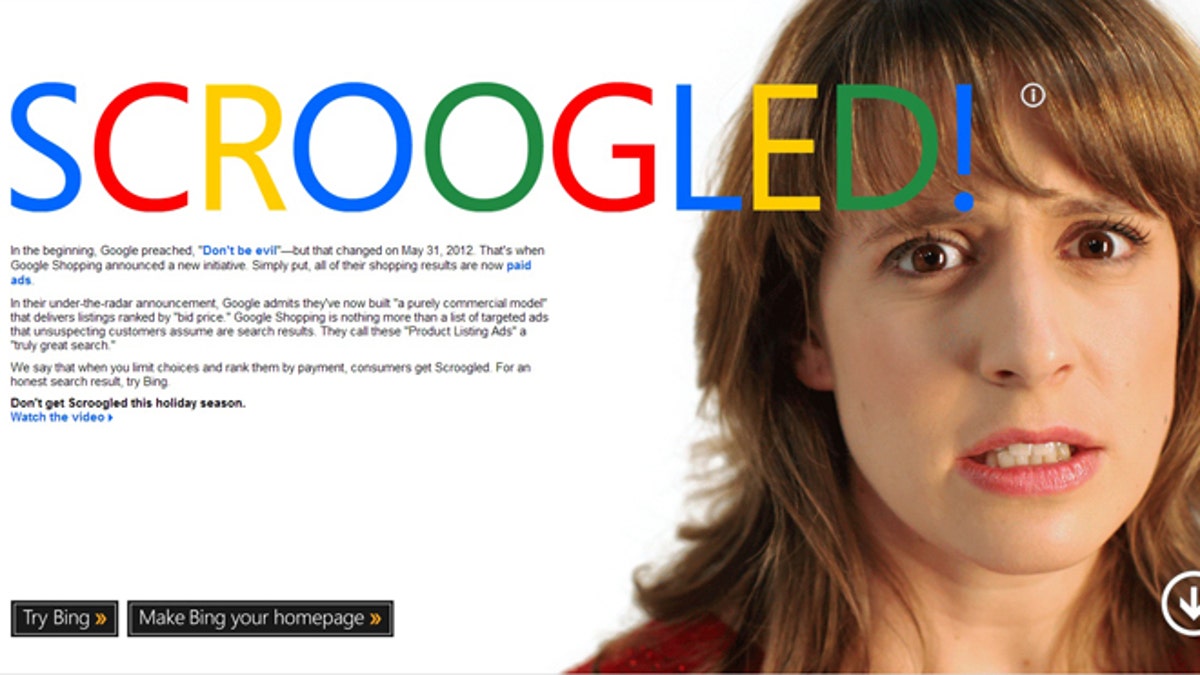
Microsoft's "Don't Get Scroogled" advertising campaign is meant to educate consumers about what it calls unfair business practices. (Microsoft Corp.)
Want to watch a cat video on your Windows Phone? Good luck.
Microsoft released a new YouTube app for its Windows Phone platform Thursday -- and Google promptly blocked it, continuing a now three year old battle over Microsoft's access to YouTube.
In a blog post on the company’s site, Microsoft's deputy general counsel made clear who frustrated Windows Phone owners could blame.
“The roadblocks Google has set up are impossible to overcome, and they know it,” wrote David Howard, corporate vice president and deputy general counsel for Microsoft. “Google’s reasons for blocking our app are manufactured so that we can’t give our users the same experience Android and iPhone users are getting.”
[pullquote]
The latest issue comes down to programming technique, Howard wrote Thursday. Google asked Microsoft to transition the app to a new coding language -- HTML5, a transition that most of the web has been making for years. But that's something Google hasn’t demanded from its iPhone and Android apps, Microsoft pointed out.
While it works on rewriting the app, Microsoft wants to push out an improved, non-HTML5 app -- and that clearly won’t fly with Google.
"We’re committed to providing users and creators with a great and consistent YouTube experience across devices, and we’ve been working with Microsoft to build a fully featured YouTube for Windows Phone app, based on HTML5,” a Google spokesman said.
“Unfortunately, Microsoft has not made the browser upgrades necessary to enable a fully-featured YouTube experience, and has instead re-released a YouTube app that violates our Terms of Service. It has been disabled. We value our broad developer community and therefore ask everyone to adhere to the same guidelines."
Microsoft argues that the app dramatically improves the YouTube experience, and should be allowed while it works on the HTML5 version.
“It’s clear that Google just doesn’t want Windows Phone users to have the same experience as Android and Apple users, and that their objections are nothing other than excuses,” Howard wrote.
Microsoft and Google have been battling it out for years over search practices, YouTube, and business in general.
In 2010, the company raised similar complaints about access to metadata that would enable extra functionality in the YouTube app.
